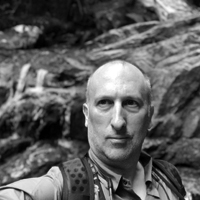DeepSec 2020 Training: Open Source Intelligence Gathering on Human Targets – Robert Sell
Robert Sell conducts a two-day training at DeepSec. In his own words: „In this workshop I provide the class with real humans (missing persons) and while they are collaborating on this I provide tools and techniques for them to use to bring them closer to their goal. This is a hands on workshop where students will also have the opportunity to learn from each other. The beginning of the class will consist of a brief intro to OpSec considerations while the end will wrap up with report prep and intel safe guarding.“
We asked Robert a few more questions about his training.
Please tell us the top 5 facts about your training.
- The Intelligence Community has been involved in open source intelligence (OSINT) for more than 50 years.
- The value of open source information to supplement classified intelligence has long been recognized, but the growing pervasiveness of the Internet and the rise of social media and big data analytics in the past two decades have revolutionized open source intelligence (OSINT).
- Most OSINT training that is available today is designed and delivered by the Information Security industry.
- While this course will utilize many of the same techniques and tools as other OSINT class/workshops it will come from a Search & Rescue and especially a Tracker perspective. We will start with the mindset of a tracker and how we hunt for real humans (missing persons).
- This training will operate more like an OSINT Operation and less like a student/teacher class. We will have the traditional slides and I will be continually providing details but we will also create an Operational Cluster and begin operating as a team to reach our objective. This simulates real intelligence operations and adds another level of reality to the training.
How did you come up with it? Was there something like an initial spark that set your mind on creating this training?
My extensive background in Search and Rescue and more specifically, human tracking allows me to approach OSINT from a different perspective. When I am tracking people in the forest, the principles are very similar to when I am conducting OSINT operations. We need to do the same best practises and we are susceptible to making the same mistakes. This is not your standard OSINT training.
Why do you think this is an important topic?
While many of us need OSINT for our jobs, it has now become something that everyone can utilize in their lives. OSINT is now used in almost every industry and can greatly help in decision making.
Is there something you want everybody to know – some good advice for our readers maybe?
We will be looking for real missing persons in this training. Come prepared to do real OSINT with real data.This OSINT training will be collaborative and hands on. You can be an expert or have no previous OSINT experience. All are welcome and we will work together to achieve our objective and learn new skills.
A prediction for the future – what do you think will be the next innovations or future downfalls when it comes to your field of expertise / the topic of your training in particular?
In my role at Trace Labs, we are speaking to law enforcement around the world to introduce the concept of crowd sourced open source intelligence. The adoption of this approach is growing faster each year. We want to work with law enforcement to ensure this is properly utilized to save lives and not impede on people’s privacy. I expect we will see an increased usage of crowd sourced OSINT not only for missing persons but literally everything.
 Robert is the founder and president of the Trace Labs Organization which organizes crowd sourced OSINT for locating missing persons. Robert defines Trace Labs as the catalyst which will change the industry and how we solve problems at a larger scale.
Robert is the founder and president of the Trace Labs Organization which organizes crowd sourced OSINT for locating missing persons. Robert defines Trace Labs as the catalyst which will change the industry and how we solve problems at a larger scale.
Robert is also Senior IT Manager in the aerospace industry. He works at an international level and spends most of his time managing information security teams. While these teams focus on the traditional risk mitigation, most of Robert’s focus is on finding better ways of securing the business. Robert has spent an increasing amount of time building defenses against social engineering. He has spoken about the rising social risk at numerous events and on different security podcasts. In 2017 and 2018 he competed at the Social Engineering Village Capture the Flag contest. He placed third in this contest (both years) and since then has been teaching organizations how to defend against social attacks and how to reduce their OSINT footprint. In 2018 he actually managed a CTF while participating in a CTF at Defcon Vegas. Robert is also a ten year volunteer with Search & Rescue in British Columbia, Canada. In his SAR capacity, Robert is a Team Leader, Trainer, Marine Rescue Technician, Swift Water Technician and Tracker.
